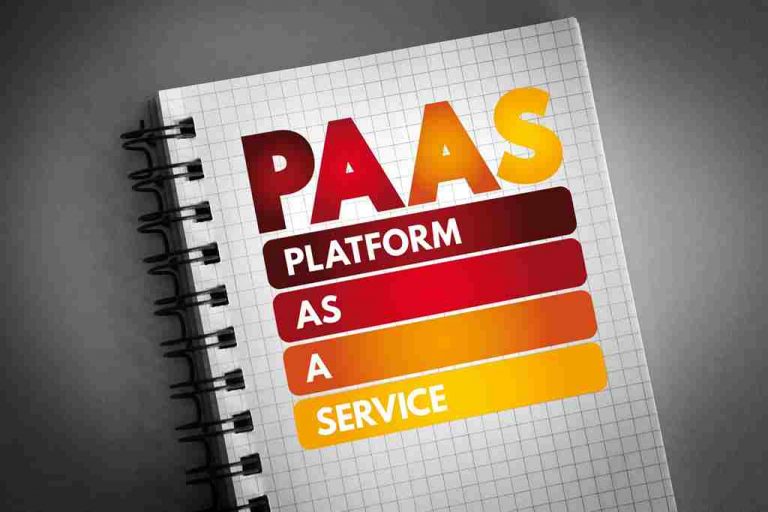This principle calls for that firms provide comprehensible and accessible data to customers about their data practices. This may help build belief and guarantee customers really feel knowledgeable and in management of their personal information. Ethical implications check with the potential results or consequences of actions, selections, or insurance policies on ethical rules and values, contemplating how these actions align with or violate established norms of proper and mistaken.

In recent years, there was growing awareness of the importance of knowledge ethics in social media, and there have been requires elevated regulation and oversight to guard user rights and privacy. Ethical considerations in data usage are essential to sustaining belief and guaranteeing the responsible and sustainable use of social media platforms. Fairness in information https://www.globalcloudteam.com/data-ethics-an-introduction-to-the-ethical-use-of-data/ ethics requires the equitable therapy of all people, making certain that knowledge practices don’t result in discrimination or unjust outcomes. This includes cautious consideration of how knowledge is collected, analyzed, and used, and taking steps to prevent biases that would harm people or groups.
Information Ethics Within The Digital Age : Navigating The Moral Waters Of Data In Enterprise Data Ethics Vs Enterprise Ethics
You should ensure you’ve cross-departmental groups working to determine ongoing protocols and coaching to keep your knowledge management in good standing. If you’re a startup, you have to be conscious of which technology and tools you utilize to gather, retailer and use data that will help you develop your small business. Unlike other web analytics options that exploit your knowledge for promoting purposes, Matomo users can use analytics with confidence, understanding that their knowledge won’t be bought to advertisers. When someone accepts the terms of your knowledge utilization, they’re not agreeing to have their knowledge launched to the basic public.
- For professionals who regularly handle and analyze sensitive knowledge, mistakes can nonetheless be made.
- You should have established groups or departments to guarantee you follow proper privacy and information protocols worldwide.
- This cover-up was a clear violation of knowledge ethics, particularly transparency and accountability, and resulted in several lawsuits and injury to Uber’s reputation.
- This is because shoppers know that they can count on these companies to collect knowledge responsibly and to use their information ethically.
- Implementing robust encryption, firewalls, access controls, and information breach alerts can help defend sensitive data from unauthorized access.
- When someone accepts the terms of your information usage, they’re not agreeing to have their data released to the basic public.
While these laws don’t directly tackle ethics, there’s a core overlap between privateness requirements like accountability, lawfulness and AI ethics. All participants should be a minimum of 18 years of age, proficient in English, and dedicated to learning and engaging with fellow participants throughout this system. No, all of our programs are one hundred pc on-line, and out there to participants no matter their location. Our platform options brief, highly produced videos of HBS college and guest enterprise consultants, interactive graphs and workouts, chilly calls to maintain you engaged, and alternatives to contribute to a vibrant online neighborhood. Download our Beginner’s Guide to Data & Analytics to study how one can leverage the ability of knowledge for skilled and organizational success.
Survey-specific Moral Concerns
When collecting personal info, the GDPR rules state that organisations must act transparently and with consent, collecting information just for the explicit objective it’s needed. They also put robust legal safety on delicate, figuring out data, also recognized as PII or Personal Identifying Information. The biggest risk to corporations right now comes not from the competition, however rather from their very own lack of ability to win and keep consumer trust.
These implications are crucial in assessing the morality and ethical acceptability of choices in numerous domains, together with business, healthcare, technology, and analysis. Ethical implications consider the impression on individuals’ rights, well-being, privateness, and autonomy, as properly as broader societal effects such as fairness, justice, and environmental sustainability. Understanding and addressing ethical implications is crucial for accountable decision-making, making certain actions usually are not solely legally compliant but in addition ethically sound, respecting the dignity and rights of all affected events. Consistent training helps guarantee workers understand their obligations when dealing with personal information. Revise training often to keep up with changing knowledge protection laws and regulations, and guarantee it covers topics similar to ethical information handling, data safety laws, and information governance policies. Data ethics in business refers again to the moral issues and principles that organizations should follow when collecting, storing, processing, and utilizing data of their operations.

Today, an enormous aspect of data ethics facilities around the thought that once companies acquire details about a shopper, that information is not to be shared or sold to another celebration with out the particular person’s consent. This is an idea that each one business professionals should take seriously, as main lawsuits and different authorized issues may end up when a company is found to be illegally selling or sharing shopper data. This means being proactive about data security and protection, which may be accomplished in numerous ways. For most businesses, the best course of action is to truly work with a cybersecurity professional who can conduct a complete audit of the company’s data collection and safety measures. From there, this skilled can make suggestions regarding safety improvements that must be made to optimize safety and maintain information safe.
Moral Use Of Algorithms
This instance illustrates how knowledge ethics ideas have been utilized to a important public well being situation. Adhering to legal requirements and rules governing data safety, such as the General Data Protection Regulation (GDPR) within the European Union, is a crucial ethical consideration. Legal compliance ensures that data extraction practices meet established standards for privateness, safety, and particular person rights. These three basic ideas type the foundation of ethical knowledge practices, guiding how knowledge must be responsibly and respectfully managed. They assist be positive that the advantages of data are harnessed in a method that respects particular person rights and promotes trust and transparency.

That’s as a result of all it takes is one poorly written algorithm to end in biased worth chains and unfair interpretations. Unfortunately, these interpretations can then be used to make choices which would possibly be extremely damaging to sure populations. Enter knowledge ethics, an idea that is hardly new, but is seeing increased consideration and focus as consumers are beginning to care more about how their information is being collected and used. Data ethics refers to the moral and accountable use of information in various contexts, such as technology, business, and analysis.
This also can demonstrate a dedication to protecting personal data and assist construct trust not only with prospects but in addition with relevant stakeholders. While establishing information ethics might be difficult, it has tremendous advantages for corporations. First and foremost, ethical data practices help companies in creating and maintaining belief with their consumers and stakeholders. Individuals who trust an organization to manage their knowledge ethically are more inclined to make use of their providers and disclose their data.
Knowledge Matters
In principle, in fact every business skilled would like to implement ethical knowledge practices of their everyday work. Unfortunately, the reality is that it’s not at all times straightforward to implement these practices and strategies. In fact, there are a myriad of challenges and obstacles that business professionals could face as they work to reform and enhance upon their data collection and usage practices. When companies comply with moral practices when it comes to accumulating and utilizing consumer knowledge, all people wins. In reality, there are several ways in which companies can profit from having strong information ethics practices in place.
On the other hand, when businesses do follow ethical data practices, they will build trusting relationships with their prospects and their business partners. This is because customers know that they’ll depend on these businesses to gather knowledge responsibly and to use their information ethically. All of this helps companies enhance their own reputations as being reliable and reliable.
It includes contemplating the ethical, legal, and societal implications of data-driven decisions. In an era marked by high-profile information breaches, algorithmic bias, and privateness issues, it’s imperative that individuals and organizations alike embrace information ethics as a elementary precept. By addressing these moral points, organizations can ensure responsible data assortment practices that respect particular person rights and construct trust with their stakeholders. Accountability obliges companies to take accountability for the info they acquire and manage. This includes guaranteeing that information is used ethically, in compliance with relevant laws and rules, and in ways that respect individual rights.

Transparency about information practices helps build trust and ensures that individuals retain management over their personal info. Privacy legal guidelines and laws are constantly evolving, so it’s important for organizations to regularly evaluation and update their privateness and knowledge governance practices to remain up to date with altering requirements. This consists of reviewing and updating insurance policies and procedures, conducting regular audits and assessments, and making certain that employees obtain ongoing training on privateness and data governance points. Implementing privacy by design can help organizations scale back the chance of information breaches and fines, and build trust with prospects and stakeholders by demonstrating their dedication to defending private data. To safeguard against unethical knowledge usage, organizations must adopt strong measures.
Understanding the ethical implications of decisions involves analyzing how those selections align with core moral rules corresponding to autonomy, justice, beneficence, and non-maleficence. It also entails contemplating the broader impacts on society, including potential unintended consequences that might arise. In essence, data ethics serves as a compass within the rapidly evolving panorama of data assortment and evaluation, guiding practices in course of more respectful, accountable, and useful use of knowledge. As knowledge continues to play a pivotal position in decision-making throughout sectors, adhering to ethical standards turns into not only a legal necessity, however a moral imperative. We observe the best moral standards, shield our participants’ privacy and rights, and are accountable for our data assortment practices. Without a doubt, information ethics is critical in the digital age, as we gather and course of large volumes of knowledge every day.

In these situations, it often makes the most sense to consult with an experienced business analyst who will know what to watch for when it comes to bias and equity in data analytics platforms and practices. With all this in mind, companies need to be especially aware of the algorithms and other systems they rely on to process and achieve insights from their data. The downside with this kind of knowledge processing is that it comes with the inherent risk of bias.
These days, artificial intelligence (AI) and machine studying technology is being used in information assortment and information analysis greater than ever. In some cases, businesses might even give consumers the ability to “opt out” of certain information collection practices. While this will appear counterintuitive for companies trying to gather as much related information as possible, the reality is that allowing clients to decide out can help further construct trust and brand loyalty. Transparency is an important principle of information ethics, referring particularly to the patron’s capability to grasp exactly what kind of information is being collected, how it is being collected, and how it is doubtlessly getting used. Transparency in information assortment and use is critical to building customer belief and stopping misuse of information after it is collected. Many organizations are now appointing Data Ethics Officers to supervise their knowledge practices and guarantee compliance with ethical requirements.
While it can be exhausting to know the aim or value of knowledge in advance — the GDPR supports the apply of function limitation. This means organisations shouldn’t operate with an intention of gathering as a lot as they can, for use for an undefined purpose, at an undetermined level in the future. Additionally, there might be some info you can not retain for greater than 12 months. Unfortunately, some corporations also resort to manipulative user agreements to get the consent they want, but it is not at all times consent a participant is pleased to provide. In other words, you have to permit your clients and website visitors to have a window inside your information activities. You’ll gain the trust of your customers, preserve a solid status and increase your model image.
A Complete Guide To Ethical Information Assortment And Its Significance
Together, they contribute to maintaining knowledge integrity, security, and moral requirements within a company. Data ethics goes beyond mere compliance with legal laws; it involves an moral commitment to doing what is right and simply, even when not explicitly mandated by law. The goal of data ethics is to foster belief among users, customers, and stakeholders by demonstrating a commitment to ethical ideas in each interaction with knowledge. PromptCloud, a pacesetter within the knowledge extraction and web scraping industry, recognizes the critical significance of moral data collection.
